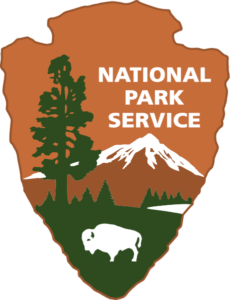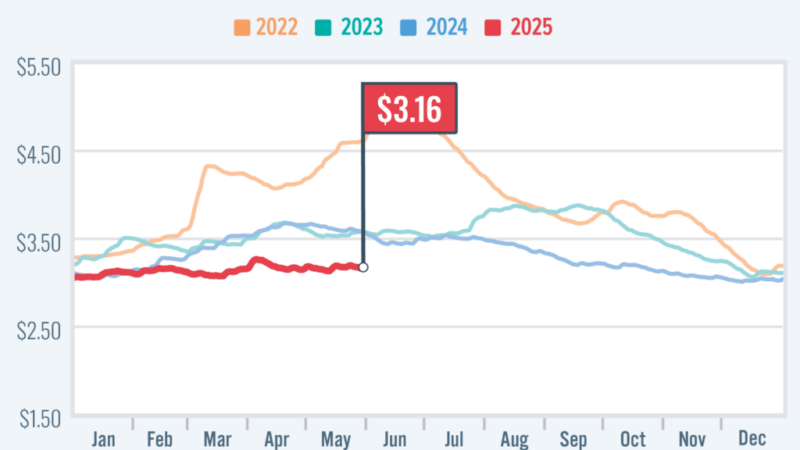Biden’s Proposes $3.8B Budget for National Park Service
 WASHINGTON — The Biden-Harris administration Thursday (March 9) released President Biden’s Budget for Fiscal Year 2024. The $3.8 billion budget request for the National Park Service (NPS) prioritizes advancing racial equity and support for underserved communities, tackling the climate crisis in the National Park System, conserving our natural resources, and using science to inform decisions, according to an NPS release.
WASHINGTON — The Biden-Harris administration Thursday (March 9) released President Biden’s Budget for Fiscal Year 2024. The $3.8 billion budget request for the National Park Service (NPS) prioritizes advancing racial equity and support for underserved communities, tackling the climate crisis in the National Park System, conserving our natural resources, and using science to inform decisions, according to an NPS release.
“The President’s request proposes investments essential for the NPS’s continued success in its second century, while remaining committed to the daily mission of ensuring that all Americans can access, enjoy, and learn in every national park,” said NPS Director Chuck Sams. “This budget supports and strengthens our commitment to the public, from supporting new parks to connecting with communities and Tribes to improving in park and digital experiences for visitors.”
The NPS not only serves a vital role safeguarding irreplaceable natural wonders and connecting Americans to our past and each other, but is also a critical driver of economic activity for small businesses and communities across the nation. For every $1 Congress invests in national parks, visitor spending returns over $10 to the U.S. economy.
The FY 2024 budget request for National Park Service will make critical investments in:
Conservation
The FY 2024 budget addresses critical challenges of our time to preserve our lands and waters for future generations to use and enjoy. Increasing operational budgets will improve boots on the ground capacity for science and natural resource management activities and help protect the nation’s treasures from 21st century threats like climate change.
Key conservation investments include:
- Expanding youth corps programs that create enriching jobs for young people
- Supporting scientific and research collaboration through Research Learning Centers
- Creating permanent capacity to respond to and recover from natural disasters
- Assessing climate change vulnerabilities so parks and infrastructure can adapt
- Investing in charging equipment and infrastructure for zero emission vehicles
Racial Justice and Equity
Executive Order 13985 – Advancing Racial Equity and Support for Underserved Communities, directs federal agencies to operate in an environment that advances equity for all, including people of color and others who have been historically underserved, marginalized, and adversely affected by persistent poverty and inequality. The FY 2024 budget demonstrates NPS’s commitment to presenting the complete story of America in which everyone can see themselves reflected in national parks; respecting and strengthening Indigenous connections, enhancing our nation-to-nation relationships, and fully upholding our trust and treaty responsibilities; and to making parks inviting for all visitors and employees by placing accessibility on equal footing with other important facility and programmatic considerations. Targeted investments within this budget proposal will:
- Fund initial costs for parks recently added to the National Park System (Blackwell School, New Philadelphia, and Brown v. Board expansion) and ensure funding is available to more rapidly start-up new parks that may be designated
- Better serve Tribal Nations and Indigenous people by hiring Tribal liaisons and subsistence managers, supporting Tribal co-stewardship efforts, and funding the Tribal heritage grant program
- Support implementation of the Native American Tourism and Improving Visitor Experience (NATIVE) Act
- Help preserve the stories of the cultures and history across America through the Japanese American World War II History Network and the United States African American Burial Grounds Preservation Program
- Address transportation barriers from underserved communities to national parks as part of efforts to expand national parks visitation to all communities
Park Capacity and Administrative Priorities
Between FY 2011 and FY 2022, the NPS has lost almost 19 percent of its base-funded staffing. Over the same period, more than 30 parks have been added to the National Park System and visitation has grown by more than 30 million. The budget proposal supports basic operational capacity needs at all parks, rivers, and trails and addresses staffing needs for new and additional responsibilities. Modest funding increases in the FY 2024 budget request provide much needed support for the United States Park Police and other law enforcement and investigative services. The proposed budget also invests in essential modernization of information technology systems and visitor services on digital platforms. Specific investments for park capacity and administrative priorities include:
- Funding facility operation and maintenance personnel to care for the Denali Park Road, ensuring people can continue to access the park into the future
- Establishing a law enforcement ranger program at Fort Smith National Historic Site
- Enhancing visitor services and education programs
- Meeting increased printing costs for park maps and information resources
- Continuing efforts to enhance digital tools that better serve visitors by reducing congestion and improving customer experience
- Investing in IT modernization needs
- Supporting visitor services for America’s 250th commemoration
Funding is highlighted by fund source:
Operations of the National Park System – This is the primary operations funding for the National Park Service.
- $3.2 billion, representing a $266.3 million increase from the FY 2023 enacted budget:
- $983.0 million for facility operations and maintenance
- $697.3 million for park support
- $509.6 million for resource stewardship
- $457.7 million for park protection
- $300.3 million for visitor services
- $241.8 million for external administrative costs
Centennial Challenge – The Centennial Challenge program is instrumental in garnering and fostering strong partnerships. All federal funds must be matched on at least a 1:1 basis.
- $15 million, which maintains this funding at the FY 2023 enacted level
National Recreation and Preservation – This supports local community efforts to preserve natural and cultural resources.
- $95.2 million, representing a 2.7 million increase from the FY 2023 enacted budget
Historic Preservation Fund – Supports Historic Preservation Offices in states, territories, and Tribal lands to preserve historically and culturally significant sites and provides competitive grants to other entities.
- $177.9 million, representing a $26.6 million reduction from FY 2023 due to the removal of congressionally directed funding provided in 2023:
- $62.2 million for grants to State Historic Preservation Offices
- $30.3 million for competitive grants to preserve historic sites that tell the story of the struggle for African American civil rights and equal rights in America
- $26.5 million for Save America’s Treasures grants to support preservation of nationally significant sites and collections
- $23 million to Tribal Historic Preservation Offices
- $12.5 million for Paul Bruhn Historic Revitalization Grants for historic preservation projects that stimulate economic growth in rural areas
- $11 million for grants-in-aid to Historically Black Colleges and Universities to support preservation of historic structures on HBCU campuses
- $10 million for Semiquincentennial Preservation Grants to support restoration and preservation of sites that commemorate the founding of the nation
- $2.5 million for Tribal Heritage Grants
Construction – Funds construction projects, equipment replacement, management, planning, operations, and special projects.
- $286.6 million, which is a $46.8 million increase from FY 2023 enacted:
- $127.8 million for line-item construction
- $18.3 million for field communications modernization
- $15.9 million for zero emission vehicle deployment, charging capacity, and related infrastructure
- $14.9 million to improve and expand NPS employee housing
- $7 million to address transportation barriers to parks from underserved communities
- $4.1 million for climate vulnerability studies
- $4 million for remediation of abandoned mineral lands
Source: https://rvbusiness.com/bidens-proposes-3-8b-budget-for-national-park-service/






